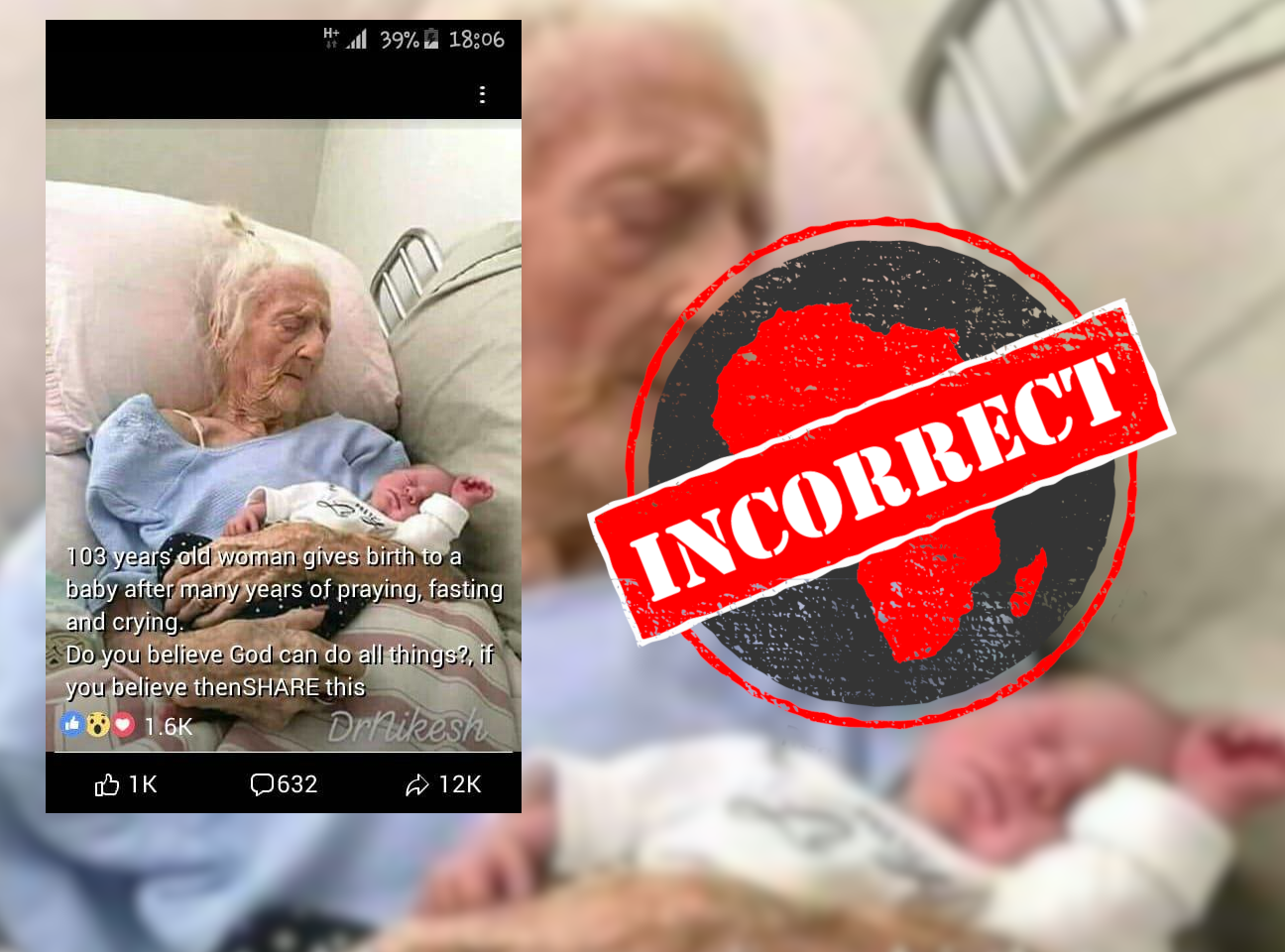A post on Facebook claims that a 103-year-old woman gave birth to a baby “after many years of praying, fasting and crying”. The photo shows an elderly woman cradling a baby in a hospital bed.
The post has racked up more than 6 million views in the past four months – but is the story true?

There are a number of ways to track down the origin of an image shared online. One way is to do a Google reverse image search. This involves uploading the image to Google Image or, on some devices, right-clicking the image and selecting “search Google for image”. This will return a number of webpages where the image has been posted.
Using this method, Africa Check was able to determine that the photo was taken in the American city of Phenix, Alabama, on 17 March 2015.
The Tampa Bay Times reports that the photo shows Rosa Camfield, 101, cradling her newborn great-granddaughter. Camfield died just weeks later, on 30 March. She became a “social media sensation”, the paper says, when the photo was shared online.
Read our guide for more tips on how to verify images online. – Africa Check
The post has racked up more than 6 million views in the past four months – but is the story true?

Woman is child’s great-grandmother
There are a number of ways to track down the origin of an image shared online. One way is to do a Google reverse image search. This involves uploading the image to Google Image or, on some devices, right-clicking the image and selecting “search Google for image”. This will return a number of webpages where the image has been posted.
Using this method, Africa Check was able to determine that the photo was taken in the American city of Phenix, Alabama, on 17 March 2015.
The Tampa Bay Times reports that the photo shows Rosa Camfield, 101, cradling her newborn great-granddaughter. Camfield died just weeks later, on 30 March. She became a “social media sensation”, the paper says, when the photo was shared online.
Read our guide for more tips on how to verify images online. – Africa Check
Republish our content for free
For publishers: what to do if your post is rated false
A fact-checker has rated your Facebook or Instagram post as “false”, “altered”, “partly false” or “missing context”. This could have serious consequences. What do you do?
Click on our guide for the steps you should follow.
Publishers guideAfrica Check teams up with Facebook
Africa Check is a partner in Meta's third-party fact-checking programme to help stop the spread of false information on social media.
The content we rate as “false” will be downgraded on Facebook and Instagram. This means fewer people will see it.
You can also help identify false information on Facebook. This guide explains how.


Add new comment